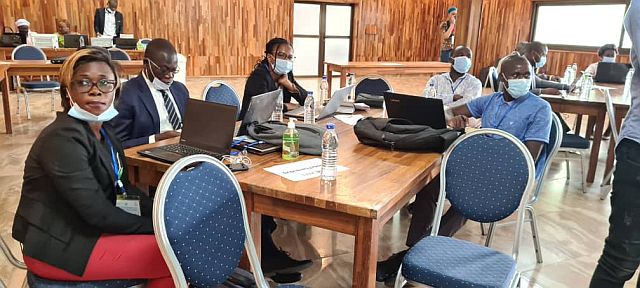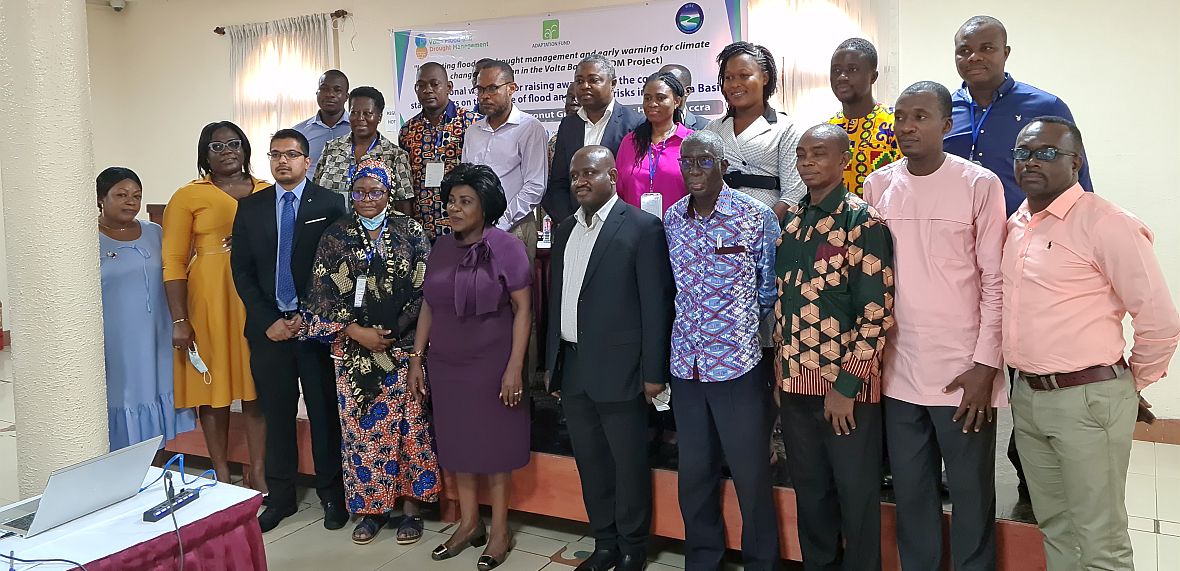The first one started in Ghana on 4 - 6 April 2022 at the Coconut Groove Hotel in Accra followed by the second one in Abidjan, Côte d’Ivoire on 11-13 and the third one in Cotonou, Benin from 26 to 28 April 2022. The last three workshops will be organized in May in Burkina Faso, Mali and Togo.
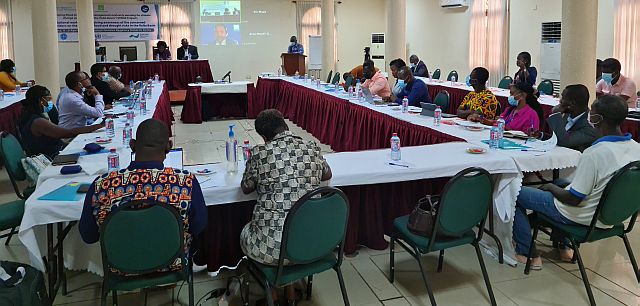 The series of national workshop are being held face-to-face in the six countries. The project executing partners (WMO, VBA and GWP-WA) and CIMA Research Foundation staff took part face to face whenever possible. Some staff from WMO, VBA, GWP-WA, CIMA Foundation and IVM-VU Institute joined virtually. The meetings are organized in the framework of project titled “ Integrating Flood and Drought Management and Early Warning for Climate Change Adaptation in the Volta Basin (VFDM) ”. VFDM project is a project funded by the Adaptation Fund.
The series of national workshop are being held face-to-face in the six countries. The project executing partners (WMO, VBA and GWP-WA) and CIMA Research Foundation staff took part face to face whenever possible. Some staff from WMO, VBA, GWP-WA, CIMA Foundation and IVM-VU Institute joined virtually. The meetings are organized in the framework of project titled “ Integrating Flood and Drought Management and Early Warning for Climate Change Adaptation in the Volta Basin (VFDM) ”. VFDM project is a project funded by the Adaptation Fund.
The workshops are meant to increase participants’ awareness and knowledge about disaster risk assessment and probabilistic risk assessment, to present and improve the understanding on the results of the Volta risk profile developed through a probabilistic risk assessment assessing potential impact for the current and future climate scenarios and improve the understanding on how to develop Risk informed policies and strategies for floods and droughts, based on the state-of-the-art technical and scientific knowledge available.
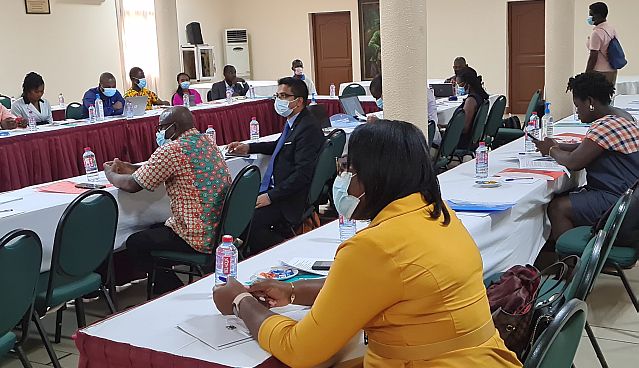 These workshops brought together stakeholders involved with different roles in disaster risk reduction (DRR) and climate change adaptation (CCA) namely Ministries of Planning, Finance, Interior, Disaster Management/Civil Protection Agency, Meteorological and Hydrological Services, Water Resources Agencies and other key ministries such as Ministry of Agriculture, Environment, Natural Resources, Education, Health.
These workshops brought together stakeholders involved with different roles in disaster risk reduction (DRR) and climate change adaptation (CCA) namely Ministries of Planning, Finance, Interior, Disaster Management/Civil Protection Agency, Meteorological and Hydrological Services, Water Resources Agencies and other key ministries such as Ministry of Agriculture, Environment, Natural Resources, Education, Health.
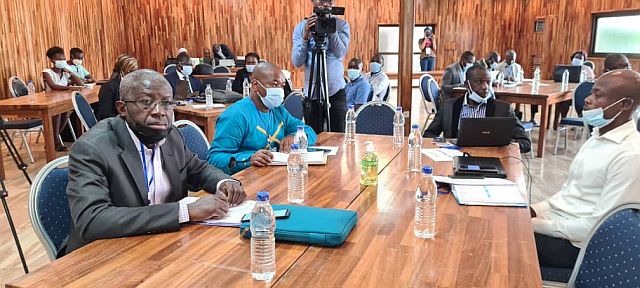 The workshops allowed participants to learn about the methodological approach used to develop the Volta risk profile for floods and droughts. They also learned about the main results of the probabilistic flood and drought risk assessment under current and future climate scenarios for the basin and for each national portion of the Volta basin. The participants appropriated the flood and drought risk profile for the Volta Basin. They were also made aware of how to integrate knowledge of flood and drought risks into policy and strategy development processes based on available technical and scientific information.
The workshops allowed participants to learn about the methodological approach used to develop the Volta risk profile for floods and droughts. They also learned about the main results of the probabilistic flood and drought risk assessment under current and future climate scenarios for the basin and for each national portion of the Volta basin. The participants appropriated the flood and drought risk profile for the Volta Basin. They were also made aware of how to integrate knowledge of flood and drought risks into policy and strategy development processes based on available technical and scientific information.
